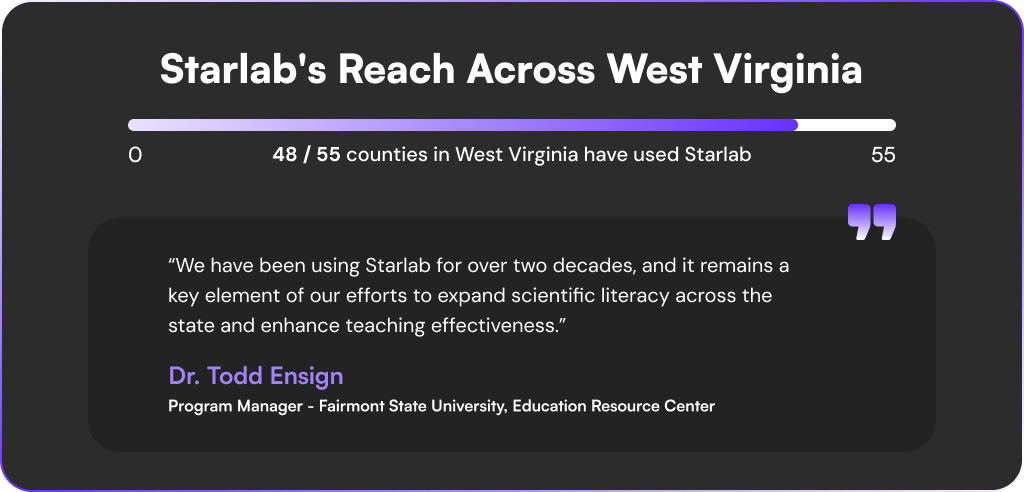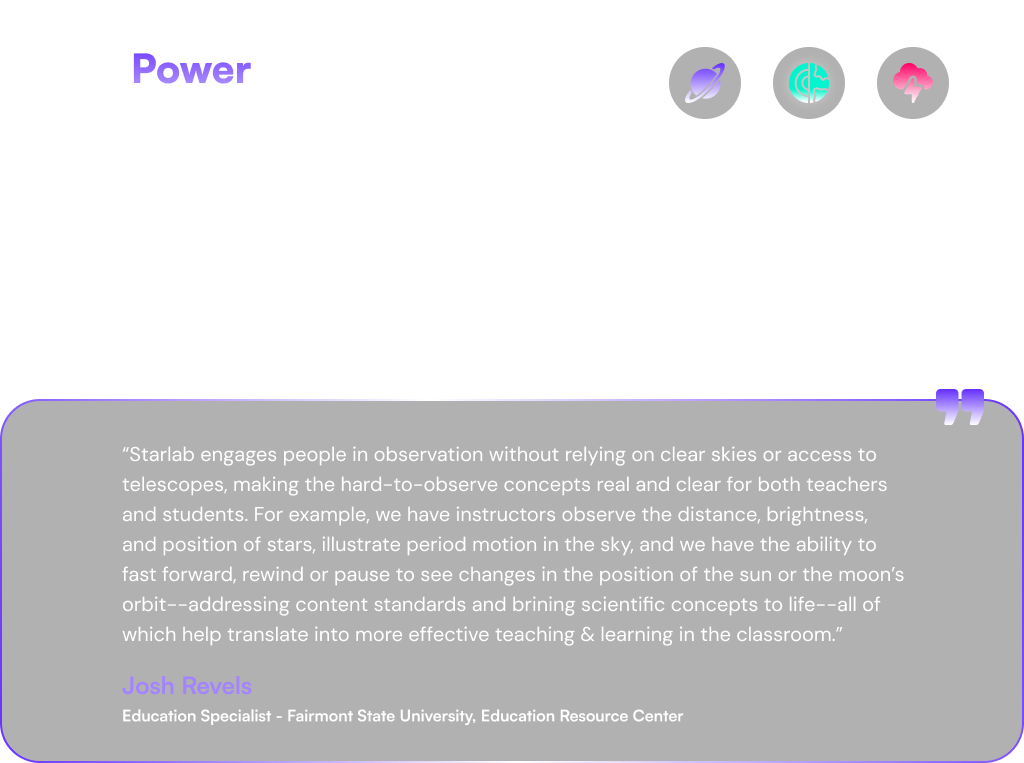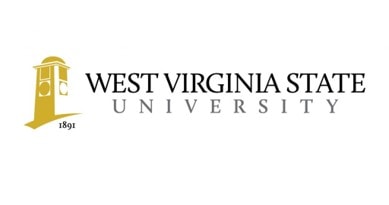Creating an Immersive Learning Experience at Fairmont State University’s Educator Resource Center

Key Factors
Fairmont State University’s (FSU) roots reach back to the formation of public education in the state of West Virginia, as the first private normal school in West Virginia established to train teachers. Today, FSU offers more than 80 baccalaureate degrees in business, computer science, education, engineering and technology, fine arts, liberal arts, national security and intelligence, political science, mathematics, nursing and allied health administration.
The University’s Educator Resource Center (ERC) promotes NASA IV&V’s vision by expanding opportunities for West Virginia’s science, technology, engineering, and mathematics students and educators. Through the ERC, Fairmont State’s College of Science and Technology works to strengthen public understanding of NASA missions, increase STEM literacy to build a diverse future workforce, and create unique opportunities for STEM students.
To that end, the ERC trains pre-service and in-service elementary and middle school teachers on West Virginia’s science content standards so they can enhance their instructional techniques and feel confident teaching STEM-based disciplines. The ERC has used Starlab for over two decades to support this goal, hosting teacher workshops, providing trained teachers with access to Starlab, and facilitating Starlab experiences for students and the broader community.

An Opportunity to Improve Teaching Effectiveness
In an effort to make science education a core focus for schools, the ERC uses Starlab to help teachers improve their teaching techniques in all disciplines of science. Teachers get a firsthand experience on what it’s like to use the tool, and the power it has to deepen learning.

The ERC also offers trained teachers the opportunity to bring Starlab into their schools in order to give students a fully immersive learning experience that can deepen their understanding of the world around them, build growing interest in STEM-related disciplines, and expand scientific literacy across its student population.
With curriculum aligned to NGSS standards and lessons that apply across grade levels, along with educator scripts, teachers can more easily create an interactive learning experience that brings hard-to-understand concepts to life. The ERC hosts workshops to train teachers in how to use the content, align it to curriculum and teaching standards, and apply the content in their classrooms.
Enriching STEM Culture Across West Virginia
The primary goal of the ERC is to enrich the STEM culture in rural counties of West Virginia.
“We want to find engaging, fun ways for students to participate in science instruction and Starlab is one of the ways we do that—it’s very engaging and fun, especially for younger students,” says Josh.
As a result, students are able to more easily visualize and understand many complex concepts around space and astronomy. The ERC has been able to reach thousands of students and educators across West Virginia–expanding their understanding of STEM–and the feedback time and again is that they can’t wait to experience Starlab again.


See where Starlab is currently being used
WVSU Extension & Starlab: Expanding Access to STEM Education in Underserved Communities Across 15 Counties


University of Illinois Urbana-Champaign & Starlab: Bringing Astronomy into Rural and Urban Classrooms


Bringing Fun AND Educational Together in Napa County’s Expanded Learning Programs


Fostering an Immersive STEM Learning Experience for Elementary Students at Danbury Public Schools


Expanding Access to Immersive Learning Experiences for Students & Families Across Spartanburg, South Carolina


Corporate Responsibility in Action: How WoodmenLife Uses Starlab to Make a Difference in its Community


Stockton Unified School District
Creating an Immersive Learning Experience for Stockton Unified School District Students

